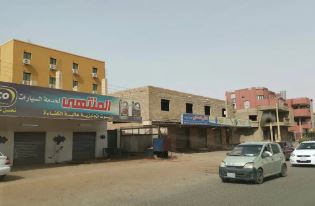As South Sudan grapples with a severe economic crisis marked by currency depreciation and hyperinflation, many young entrepreneurs in the capital, Juba, are facing tough decisions with some opting to close their businesses due to the escalating costs and economic instability.
However, others continue to persevere despite the challenging conditions.
The ongoing financial commotion has made it difficult for businesses to operate, as the rapidly depreciating local currency and soaring inflation corrode purchasing power and increase operational costs.
Anthony Sebit Martin, a young entrepreneur dealing in mobile money transfer business, said he has shut down his business because of the depreciation in the South Sudanese Pound.
He says that as someone who deals directly with both local and hard currencies, it has become hard to sustain his business because getting the US dollar which has become scarce has presented a huge problem.
“I am among those who have shut down their businesses because of the fluctuating market prices caused by the economic instability. I was into mobile money business, we do transactions and send money to Uganda, Kenya, and parts of Rwanda and even Tanzania,” he explains. “My biggest challenge was the issue of the dollar because my business deals directly with hard currencies, especially the dollar, which is sometimes very hard and expensive to get.”
Furthermore, looking at the losses in paying rent and taxes, Sebit says he decided to close his business.
“We used to buy the dollar at SDSP 280,000 for USD 100. You buy a USD 100 today at SSP 280,000 and tomorrow it rises to 290,000 or 300,000 which was very hard,” he explicates. “You sell float today, tomorrow you go and get a new float, you find the price has changed and that deteriorates to the business”
Currently, USD 1 sells at SSP 4,200, which has resulted in hyperinflation across the country with commodity and fuel prices skyrocketing every day.
With frustrations occasioned by the difficulties in getting hard currency, Sebit said he is currently looking to start a different trade.
“My plan for now is to look into another line of business because the profit margins in my money transactions were very small,” he says. “Once the profits come, you need to divide it with the authorities. We have a lot of tax collection authorities like the Juba City Council, State Revenue Authority, National Revenue Authority, Criminal Investigation Department (CID), and other securities agencies among others.”
He adds: “All these people have to come to you to share the small profits that you get and this makes business so hard and these are the main factors that contributed to the close of businesses.”
For his part, Simon Martin, the director and owner of Diamond Driving School, says his business is also feeling the impacts of the economic crisis as fuel prices have shot up to SSP 5,300 and payment of staff and rent have become a challenge.
“The economic crisis has affected a lot of businesses and not my business alone. In our case, we are dealing with fuel, salaries, spare parts, rent, and government taxes,” he laments. “The economic crisis has affected us a lot and because we are working with local currency, it is very hard for us. The fuel dealers charge according to the dollar rate and this is very hard for us.”
According to Martin, most businesses, including driving schools, depend on fuel and vehicle spare parts imported from other countries.
He advised young people in the business sector to keep pushing to be able to sustain a living.
“My advice is that business is something that depends on the person who is operating it and the way you are operating your business. Some people shut down their businesses because of too much taxes yet they get little income, so, most of them just shut down their businesses,” he states. “However, my advice to those who may think of closing their businesses is to think of starting other business activities so that they can generate some income.”




